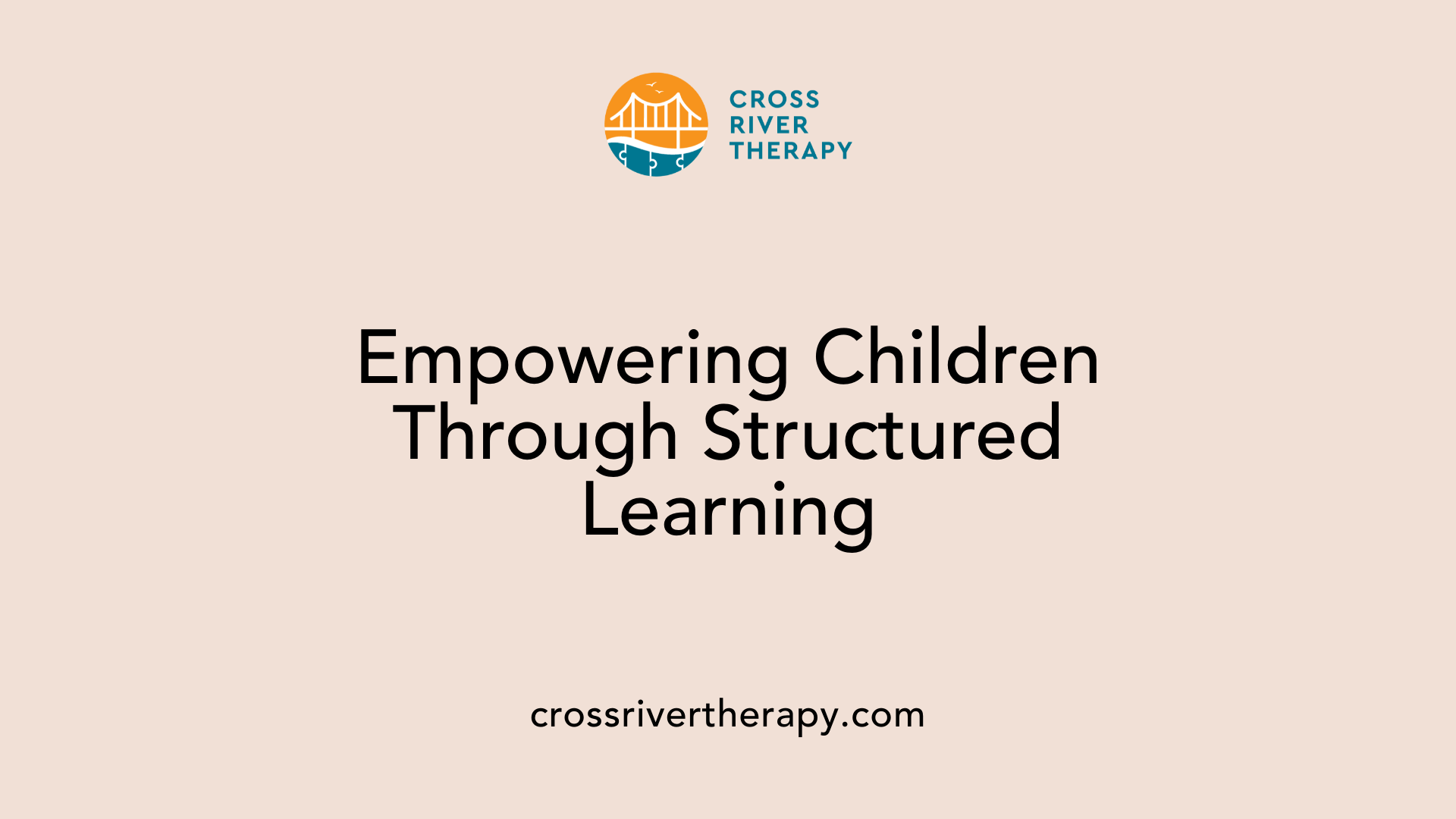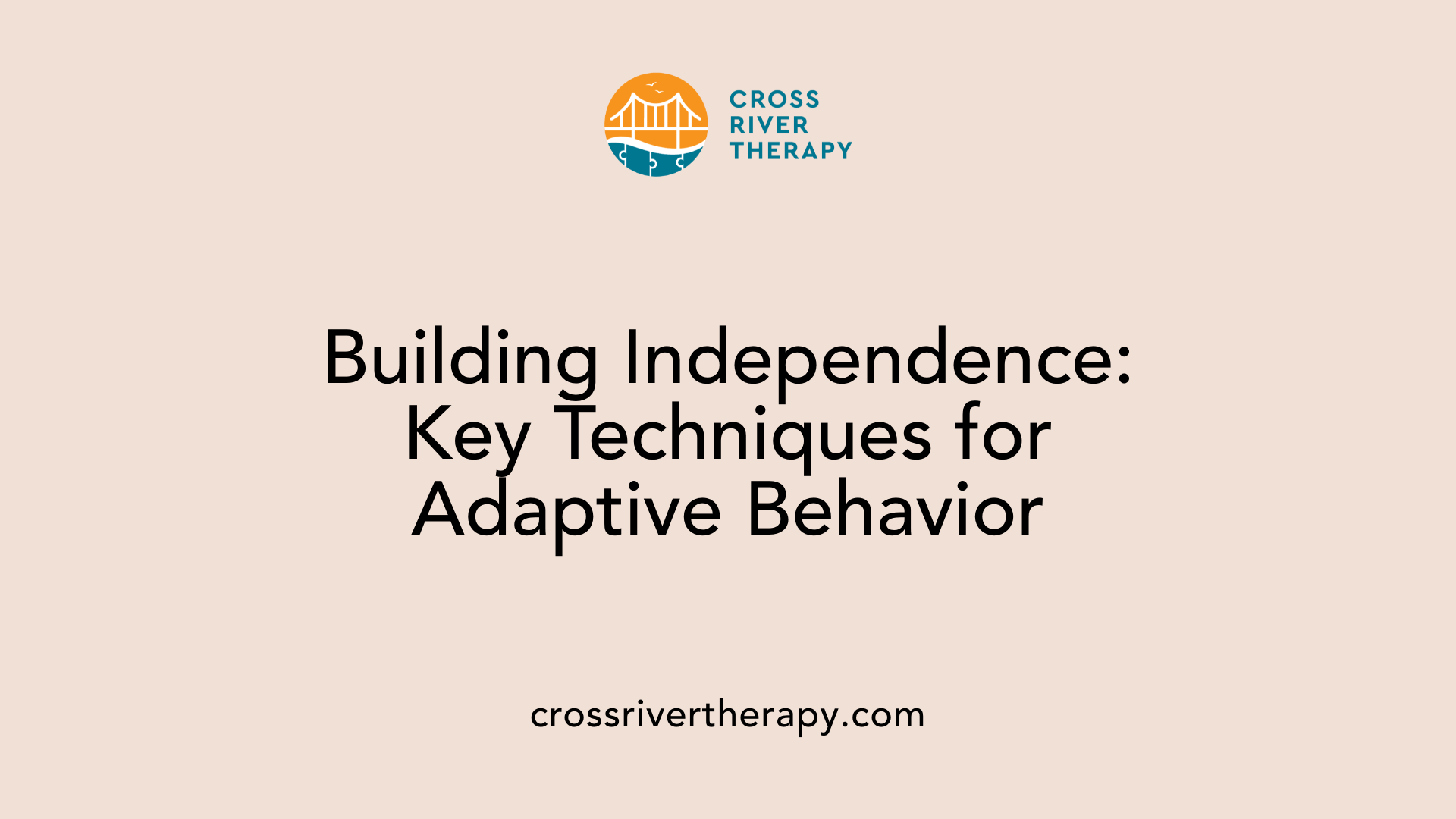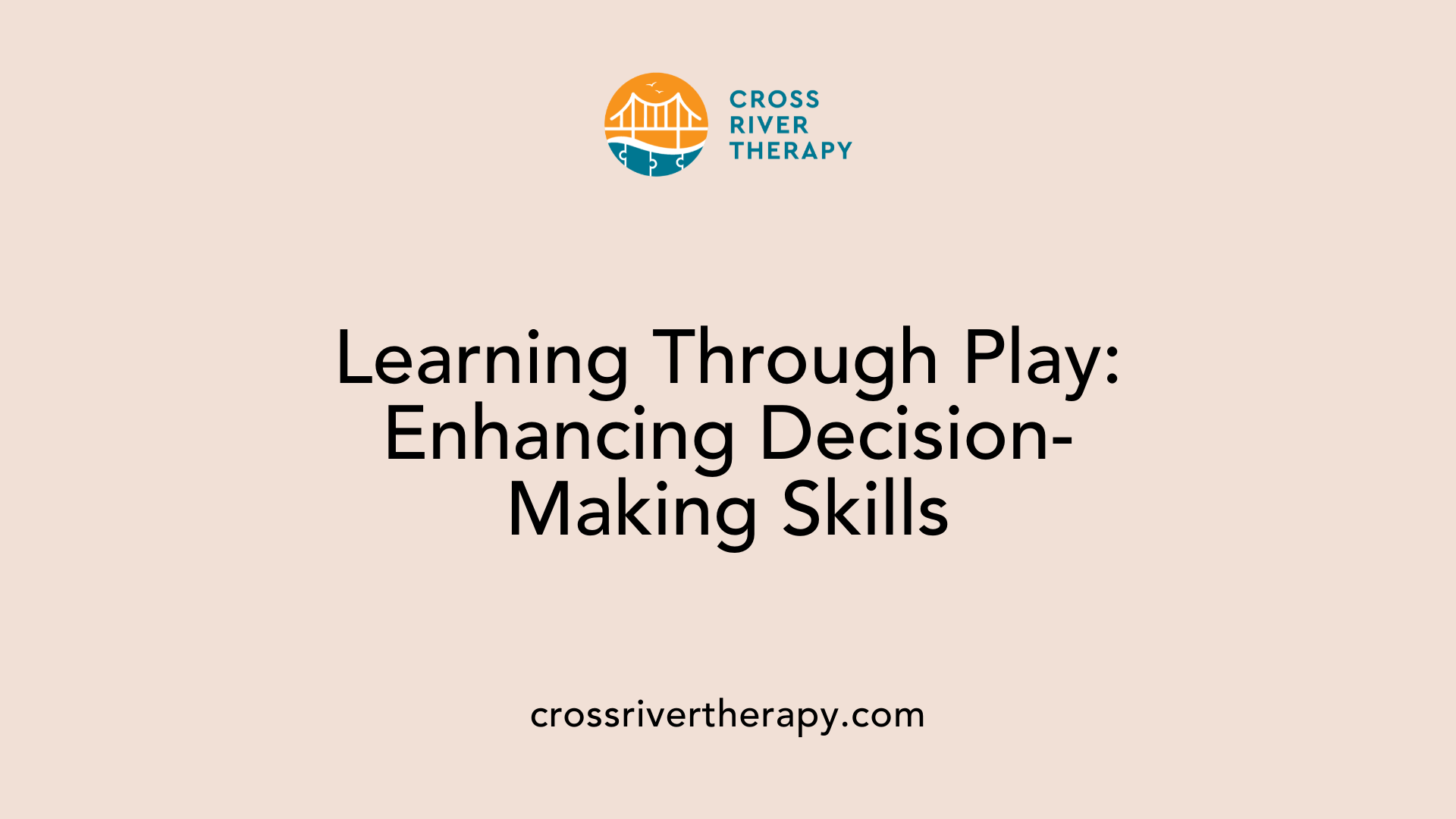How ABA Therapy Encourages Children to Develop Decision-Making Skills
Unlocking Decision-Making Skills in Children with ABA Therapy
Understanding ABA Therapy's Role in Decision-Making
Applied Behavior Analysis (ABA) therapy is renowned for its scientific approach to instigating positive behavioral changes in children, particularly aiding those with autism spectrum disorder (ASD). While it excels in enhancing communication and adaptive behaviors, ABA therapy also plays a crucial role in developing decision-making skills. This article delves into how ABA therapy achieves this, the specific benefits it offers, and the play-based strategies that enrich children's learning experiences.
The Framework of ABA Therapy: Promoting Decision-Making Skills

What is Applied Behavior Analysis (ABA) Therapy?
Applied Behavior Analysis (ABA) therapy is a structured and scientific approach centered on modifying behavior through reinforcement strategies. This approach is particularly beneficial for children with autism, as it helps foster critical decision-making skills essential for their independence. By breaking down complex tasks into manageable steps, ABA allows children to learn at a comfortable pace while building their confidence.
How Does ABA Therapy Assist in Developing Decision-Making Skills?
ABA therapy employs various techniques to enhance decision-making. For example, children are encouraged to practice choosing between different options using visual aids like choice boards and schedules. This clarity makes the consequences of decisions easier to understand.
Additionally, positive reinforcement plays a vital role. When a child makes a decision, and it leads to a favorable outcome, they receive rewards that encourage further practice. This cycle of reinforcement fosters a sense of accomplishment and gradually strengthens their decision-making capabilities.
The Role of Reinforcement and Task Analysis
Task analysis is another key component of ABA therapy. By breaking down large tasks into smaller, specific actions, children can achieve measurable goals without feeling overwhelmed. This method promotes exploration and critical thinking, allowing kids to adapt their strategies based on feedback and new information. As they see their progress, it simultaneously enhances their cognitive flexibility and self-control—both vital for effective decision-making.
The Significance of Data Collection
Data collection in ABA is crucial for tailoring interventions to meet individual needs. Tracking each child's progress offers insights into what works best for them, whether in learning new skills, managing emotions, or communicating effectively. By documenting these patterns, therapists can refine approaches, ensuring children receive the precise support they need for optimal development in decision-making and everyday skills.
| Framework Component | Description | Impact on Decision-Making Skills |
|---|---|---|
| Principles of ABA Therapy | Scientific methods of behavior modification for positive change | Supports structured learning and understanding choices |
| Role of Reinforcement | Encouragement through rewards for favorable decisions | Builds motivation and confidence |
| Task Analysis | Breaking down tasks into manageable steps | Enhances focus and reduces overwhelm |
| Data Collection | Monitoring progress to tailor interventions effectively | Optimizes individualized support |
Benefits of ABA Therapy in Decision-Making for Children with Autism

What are the specific benefits of ABA therapy in improving decision-making capabilities in children with autism?
ABA therapy provides a myriad of benefits that enhance decision-making capabilities for children with autism. By incorporating choice theory, children are encouraged to engage through meaningful options, fostering a sense of empowerment. This empowerment is crucial as it promotes self-determination and enhances motivation.
Visual supports are a fundamental part of ABA therapy. Using charts and schedules helps children comprehend sequences and expectations, which is essential for informed decision-making. Additionally, tailored learning plans address each child’s unique needs, promoting critical thinking and adaptive behaviors in their day-to-day lives.
Another significant aspect of ABA therapy is its focus on social skills instruction. This is vital for understanding the social contexts that inform decisions, equipping children with the skills necessary for effective interactions. Incorporating role-playing and social stories allows practice in a supportive environment, preparing them for real-life situations.
Furthermore, the structured approach of ABA therapy emphasizes data-driven decision-making, where therapists observe and reinforce desired behaviors. This reinforcement encourages repetition, which can lead to mastery of planning, organization, and impulse control—key components in the decision-making process.
Overview of ABA Therapy Benefits in Decision-Making
| Benefit | Description | Impact on Decision-Making |
|---|---|---|
| Empowerment through choice theory | Encourages engagement through meaningful decisions | Fosters self-determination and confidence |
| Enhancement of motivation and problem-solving | Personalized learning plans motivate critical thinking | Improves ability to solve real-world problems |
| Structured learning and social skills | Integration of social skills for real-world context | Enhances informed decision-making in social settings |
Through these structured and supportive methods, ABA therapy equips children with the necessary skills to navigate their environment more effectively, leading to greater independence and fulfillment.
Enhancing Independence through ABA Techniques

How do techniques used in ABA therapy, such as positive reinforcement and task analysis, promote independence and adaptive behavior in children with autism?
ABA therapy employs several techniques that significantly enhance independence and adaptive behavior among children with autism. Positive reinforcement is fundamental; it encourages children to repeat desired behaviors by rewarding them, which fosters confidence and skill mastery. For instance, when a child successfully communicates a need and receives praise, they are more likely to ask for help again in the future.
Another crucial technique is task analysis. This breaks down complex tasks into smaller, manageable steps, such as dressing or personal hygiene routines. By deconstructing tasks, children can learn at their own pace and feel a sense of accomplishment as they master each step. This method is pivotal for helping them gain essential self-care and organizational skills.
Moreover, ABA therapy promotes the acquisition of essential life skills, including communication and social interaction, which are vital for fostering independence. By integrating family involvement, children are encouraged to practice these skills in real-world settings, ensuring they can generalize what they've learned in therapy to everyday situations. This supportive approach significantly boosts their ability to navigate daily challenges, ultimately enhancing their quality of life.
The Power of Play-Based Strategies in ABA Therapy

How do play-based strategies within ABA therapy enhance decision-making abilities in children?
Play-based strategies within ABA therapy significantly enhance decision-making abilities in children by creating engaging and interactive learning experiences. These techniques promote choice-making and problem-solving, essential for fostering independence.
Role of play in learning
Play acts as a natural learning tool. Through enjoyable activities, children are more likely to engage and process information effectively. Interactive strategies like role-playing encourage social skills development as children negotiate and make choices collaboratively. This interaction nurtures empathy and understanding, which are critical components for effective decision-making.
Interactive strategies like role-playing
Structured play interventions guide children through social scenarios, providing safe environments for practicing decision-making skills. For example, role-playing different social situations allows children to experiment with various outcomes, enhancing their ability to make informed choices. Incorporating games that promote critical thinking can lead to improved problem-solving aptitudes.
Personalization of play activities
Personalizing play-based interventions to suit each child’s preferences increases engagement and retention. Tailoring activities ensures that the learning experience is both enjoyable and effective. This personalization can lead to better skill acquisition and improved confidence in decision-making abilities.
Overall, play-based strategies in ABA therapy integrate fun with learning, fostering essential skills that children with autism can apply in real-world situations.
Techniques to Enhance Executive Functioning through ABA

What ABA strategies are used to improve executive functioning and decision-making skills in children with autism, and how effective are they?
Applied Behavior Analysis (ABA) employs several effective strategies to enhance executive functioning and decision-making skills in children with autism. Key methods include:
- Task Analysis: This technique involves breaking down complex tasks into smaller, manageable steps. This simplifies decision-making and provides children with a clear pathway to follow, fostering a sense of accomplishment as they complete each step.
- Visual Supports: Charts, schedules, and choice boards are used to clearly outline options and consequences. This enables children to visualize their options, improving comprehension and decision-making capabilities.
- Positive Reinforcement: Rewarding children for making decisions or completing tasks reinforces their efforts and encourages continued practice in decision-making. This builds confidence and motivates them to improve their skills.
- Modeling and Video Demonstrations: Showing children how to make decisions through role models and video examples helps them understand expected behaviors in various situations.
Research on effectiveness
Research indicates that around 80% of children with autism face challenges with executive functioning, significantly impacting their daily lives. To assess these challenges, professionals often utilize tools like the Behavior Rating Inventory of Executive Function (BRIEF), guiding targeted interventions. Studies suggest that children who receive ABA therapy demonstrate improved skills in planning, organization, and impulse control, which are critical for effective decision-making.
Overall impact on daily functioning
The combined use of these ABA strategies greatly enhances children's ability to navigate daily situations. By improving executive functioning through structured interventions, children become more adept at problem-solving, managing expectations, and interacting socially. Encouraging autonomy in decision-making not only boosts confidence but also prepares them for future independence, ultimately leading to a more fulfilling life.
The Role of Visual Supports in ABA Therapy
Using schedules and charts
Visual supports like schedules and charts are vital tools in ABA therapy for children with autism. These aids provide a structured way for children to visualize their day-to-day activities. By laying out tasks and routines clearly, children can anticipate what comes next, reducing anxiety and helping them focus.
Impact on comprehension and decision-making
These visual aids also enhance comprehension, making it easier for children to grasp concepts and understand the consequences of their choices. For instance, a choice board can outline two options clearly, empowering kids to make decisions confidently. When they see the outcomes of their decisions visually, it aids in their understanding and reinforces their learning.
Encouragement of positive behaviors
Lastly, visual supports can be a powerful motivator for encouraging positive behaviors. When children succeed in following a visual schedule or making appropriate choices with a choice board, they can receive positive reinforcement. This not only boosts their confidence but also encourages the repetition of these desirable behaviors, paving the way for improved decision-making skills.
Preparation for Real-world Scenarios through ABA
Use of role-playing and social stories
Role-playing and social stories are powerful tools within Applied Behavior Analysis (ABA) therapy. These methods create opportunities for children with autism to practice decision-making in a safe environment. Through role-playing, children can simulate real-life social situations, allowing them to experiment with various responses and actions without the pressures of a real scenario.
Development of social and decision-making skills
Social stories provide clear narratives that outline social situations and expected behaviors, helping children understand how to navigate interactions more effectively. This structured approach enables kids to hone decision-making skills while also enhancing their social understanding. By internalizing these stories, children learn to identify options and outcomes in social contexts.
Impact on children's confidence and autonomy
As children engage in these activities, they build crucial skills that foster confidence and independence. Practicing decision-making through play reduces anxiety associated with social interactions, empowering them to make choices boldly in real life. This increased autonomy is essential for their overall development, paving the way for a more confident, self-advocating future.
The Broader Impact of ABA Therapy
ABA therapy stands out as an impactful intervention for children with autism, offering a blend of structured learning and creative engagement that boosts decision-making, independence, and adaptability. By leveraging techniques like positive reinforcement, task analysis, and play-based strategies, ABA therapy equips children with the necessary skills to navigate their daily lives confidently. As families and therapists continue to implement these strategies, the potential for enriched lives and brighter futures for children on the autism spectrum becomes ever more achievable.
References
- Tips for Teaching Decision-Making to Kids with Autism
- Benefits of ABA Therapy for Children - First Step Arkansas
- How ABA Therapy Supports Child Development
- How Play Transforms ABA Therapy for Children with ASD!
- ABA Therapy for Leadership Skills: Empowering Children
- Independence in Individuals with Autism: Role of ABA Therapy
- Promoting Independence in Kids with ABA Therapy ...
- Using ABA Techniques to Improve Daily Skills in Children
- Encouraging Cooperative Play with ABA Therapy



